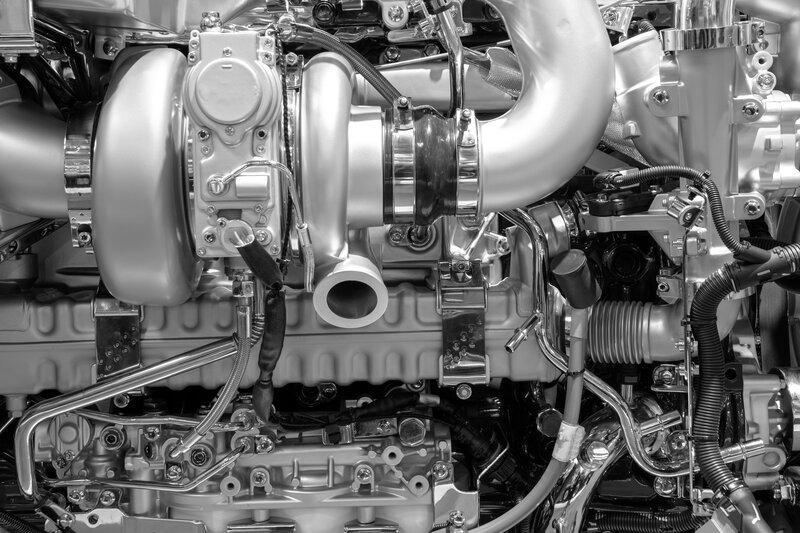
The world relies on diesel engines more than you think. Diesel engines are internal combustion engines that compress air to a high position to ignite diesel fuel into the cylinder.
Years after its creation in the 1890s, it quickly became a staple in many industries. Today, diesel engines are the power behind buses, trains, submarines, tractors, large trucks, and heavy load vehicles. You can read more about our heavy-duty truck repair services here.
Have you ever wondered why diesel is used in heavy vehicles? In this article, we'll explore some of the top reasons larger vehicles use diesel.
Traditionally, diesel is known to be much more powerful than gasoline engines. Perhaps one of the main reasons why diesel is used in heavy vehicles is the torque that this type of engine offers. Trucks, trailers, and other types of heavy vehicles require a significant amount of torque output to move at even the slowest speeds. Diesel engines can generate enough torque to power heavy vehicles at any speed.
The fuel used in both gasoline and diesel engines starts as crude oil derived from the earth. However, they undergo different refining processes. Diesel fuel is thicker and burns considerably slower than gasoline fuel. Slow combustion diesel fuel can burn even at a moderate temperature which lends to this engine's fuel efficiency.
Using a petrol engine in a heavy vehicle simply wouldn't be practical. Petrol or gas-based engines have a low RPM. Therefore, if they were used in larger vehicles, the fuel would burn rapidly. On the contrary, due to its composition, the fuel used in diesel engines burns at a slower rate. Diesel engines can provide better fuel economy, which is crucial since they are mainly used in industrial vehicles.
All-powerful diesel engines are no match for smaller vehicles since they cannot handle their weight and extreme vibration levels. Bulky vehicles with their big bodies can adequately support the weight and dampen the vibrations of the diesel engines. Put simply, the size of the diesel engines and their weight require that they be used in vehicles with massive space.
The answer to why diesel is used in heavy vehicles depends on many factors. Diesel engines are built to last and are highly durable for several reasons, which include:
Diesel engines are constructed with larger blocks, thicker walls, and larger pistons. Its bulky design facilitates adequate lubrication, reducing friction and preventing damage to parts that rub on each other.
As previously mentioned, diesel engines run at lower RPMs than gasoline engines. Since these engines can achieve the same power level with lower revolutions per minute, this results in less wear on essential engine components such as pistons, rings, cylinders, bearings, and valves.
Unlike gas engines, diesel engines aren't equipped with spark plugs or the electrical systems that power them. Because of this, they are less prone to malfunctioning. Generally, diesel engines can run for 500,000 miles and beyond without requiring major repairs.
While many people opt for diesel engines because of their longevity and fuel efficiency, there are some downsides to this type of engine. The cost of manufacturing and maintaining diesel engines is one of its main disadvantages. Diesel engines are expensive to manufacture because they require extra hardware to construct and heavier duty components to obtain high compression ratios.
Emission control is also imperative when it comes to diesel engines. Emissions produced from diesel engines can contribute to ground-level ozone pollution. To import vehicles with diesel engines, you must adhere to strict emission requirements.
Heavy industrial vehicles equipped with diesel engines require routine maintenance to ensure their longevity. Critical maintenance tasks include:
When it comes to proper diesel engine maintenance, you can trust our skilled technicians. We have experience working on advanced diesel engines. Our technicians can help keep the diesel engines in your industrial trucks revving for hundreds of thousands of miles more. Hopefully, we’ve answered your question of why diesel is used in heavy vehicles. Learn more about mobile truck repair services by All Bay Diesel today.